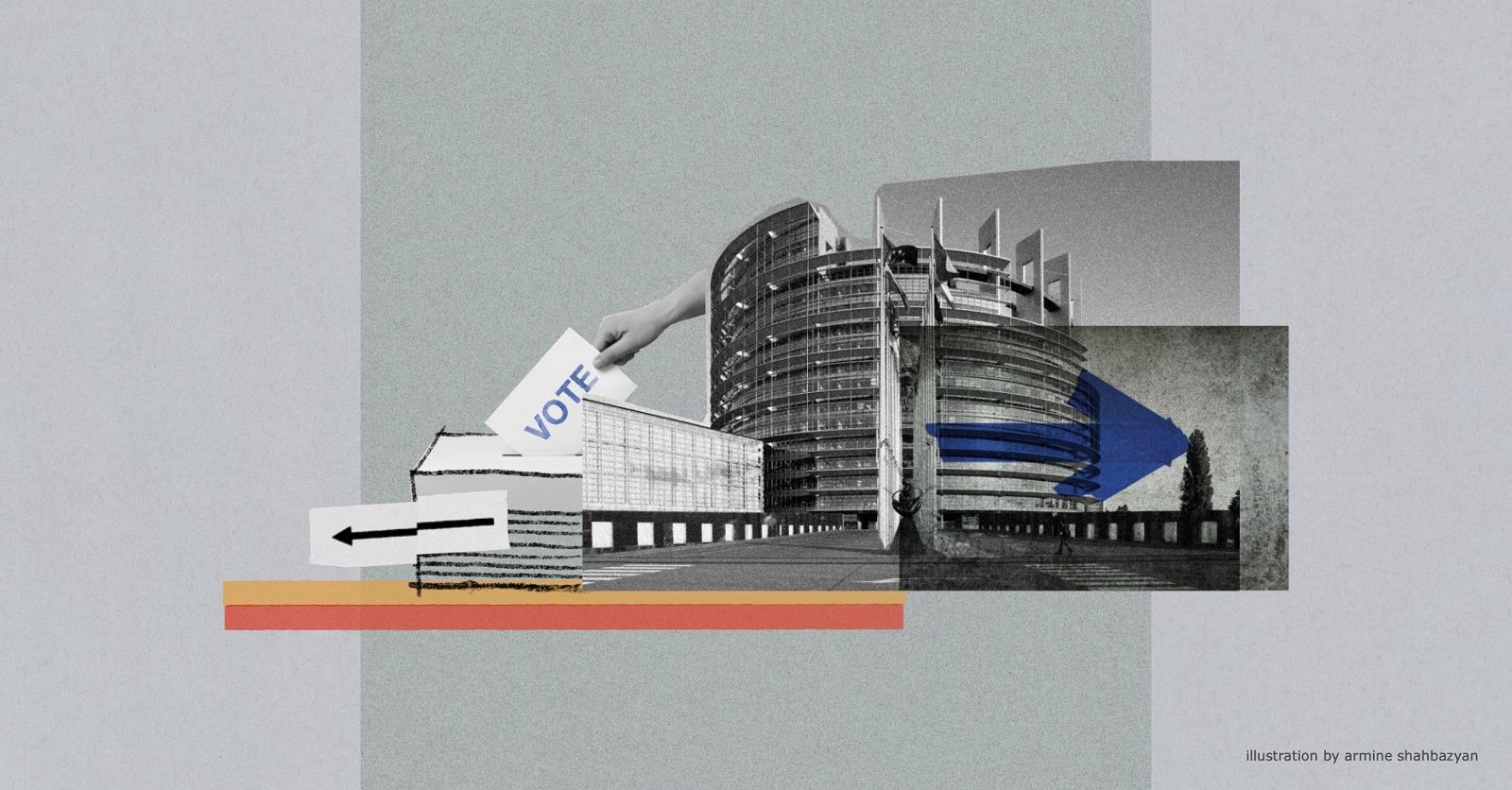
Listen to the article
On June 9, 2024, the European continent witnessed its largest democratic exercise, when nearly 450 million citizens were called to vote in the European Parliament elections. These elections have traditionally been considered of secondary importance and often experience high absentee rates and limited public interest. Yet, this year’s elections defied expectations with the highest voter turnout in the past two decades; 50.93% of eligible voters participated, indicating a significant surge in engagement and interest in the future direction of the European Union. This increase in voter turnout underscores a renewed public commitment to the democratic process at the continental level.
These elections were particularly significant as they were the first following the full enactment of Brexit, the United Kingdom’s historic exit from the EU, which reshaped Europe’s political landscape. Moreover, the elections took place amid major geopolitical crises such as the ongoing war in Ukraine, ethnic cleansing in Artsakh, and the catastrophic situation in Gaza. These crises have heightened political awareness and urgency among the electorate, contributing to the increased turnout. The results of these elections are expected to shape the EU’s stance on key international issues and its internal cohesion in the face of unprecedented challenges.
Heightened political engagement has shifted the balance of power within the European Parliament. The elections have resulted in increased support for right-wing and far-right political parties, who have emerged as the major winners. These parties have significantly strengthened their positions, reflecting a broader trend towards more conservative and nationalist policies across Europe. This shift indicates a change in the EU’s political climate, with a move away from the center towards the right. The profound implications of this shift could influence the EU’s legislative priorities and its stance on critical issues such as immigration, national sovereignty, and relations with non-EU countries.
The main political parties in the European Parliament 2024 include:
European People’s Party (EPP): Center-right, Christian democratic, and pro-European integration, this party supports economic growth, a strong single market, and security. Contrary to predictions of seat losses, the EPP instead gained 10 seats, with a total of 186 seats, compared to five years ago.
Progressive Alliance of Socialists and Democrats (S&D): A center-left, social democratic party focused on social justice, workers’ rights, equality, and sustainable development. Despite remaining the second-largest parliamentary faction the S&D experienced a slight decline, securing 135 seats — four fewer than the previous term.
Renew Europe (RE): As a centrist, liberal party, RE advocates for individual freedoms, a market economy, innovation, and stronger European cooperation. However, it saw a significant reduction, dropping to 79 seats –– a loss of 23 seats.
European Conservatives and Reformists (ECR): Center-right to right-wing and Eurosceptic, the ECR emphasizes national sovereignty, economic liberalism, and controlled immigration. The party slightly improved their standing with 79 seats, gaining four.
Identity and Democracy (ID): Right-wing to far right and nationalist, ID promotes national sovereignty, strict immigration controls, and economic protectionism. It gained nine seats, bringing the total to 58 seats.
Greens/European Free Alliance (Greens/EFA): Left-wing and focused on green politics, Greens/EFA emphasizes environmental sustainability, climate action, and social justice. They emerged as one of the biggest losers in this election, dropping to 53 seats –– a loss of 18.
The Left: Far left and democratic socialist, The Left advocates for social equality, workers’ rights, anti-globalization, and public ownership of key sectors. It gained 36 seats, losing only one.
Non-attached Members (NI): This varied group doesn’t belong to any official political group, reflecting diverse individual ideologies. They gained 45 seats and lost 17.
The results of these elections reflect a complex, shifting political landscape. These changes indicate evolving voter priorities and political dynamics within the EU.
The elections saw notable gains for populist right-wing and far-right parties in various EU member states. These parties leveraged widespread dissatisfaction with the EU’s Green Deal, strong anti-migration sentiments, and economic anxieties.
In France, the far-right Rassemblement National secured a significant victory, garnering more than double the votes of President Emmanuel Macron’s party. This led Macron to call for snap parliamentary elections. In Germany, the Alternative für Deutschland (AfD) won a notable second place, surpassing Chancellor Olaf Scholz’s Social Democrats.
While these populist and far-right groups will not hold a majority in the new European Parliament, their increased representation could influence the EU’s legislative priorities. This influence may be particularly evident in areas such as climate policy, migration, and economic strategy over the next five years.
The results of the 2024 European Parliament election indicate a complicated future for the EU’s enlargement and internal reform agenda. Many EU leaders emphasize the need for simultaneous reforms within the union advocating for a shift to qualified majority voting (QMV) on key issues like tax policy and foreign policy to streamline decision-making. However, populist right-wing and far-right parties, who perceive these changes as threats to national sovereignty, strongly oppose this push for reform. Their strengthened presence in the European Parliament could hinder the adoption of such reforms, reflecting a broader tension between deeper integration and preserving national autonomy.
The election results suggest a shift in the European Parliament’s stance on international relations and aid. With a more pronounced populist right-wing and far-right influence, there is a discernible move towards a more transactional perspective on foreign partnerships. This shift could deprioritize traditional EU spending areas such as humanitarian assistance and development aid. Instead, funds may increasingly go to countries that align with the EU’s immediate interests, particularly those committed to combating illegal migration.
This pragmatic, interest-driven approach marks a departure from the EU’s historically value-based foreign policy, which has often emphasized humanitarian assistance, development, and the promotion of democratic values. The new Parliament is likely to prioritize security and migration controls over these broader humanitarian goals, reflecting the electorate’s concerns and the growing influence of nationalist and protectionist sentiments.
In the context of EU enlargement, these dynamics present additional challenges. Aspiring member states must not only meet stringent accession criteria but also navigate an EU increasingly focused on internal cohesion and security. The insistence on simultaneous reform and enlargement means that new members will enter a union grappling with its own structural changes and internal divisions. This dual focus could complicate the accession process, potentially slowing down or altering the trajectory of enlargement.
Moreover, the Parliament’s transactional stance could impact the EU’s relationships with its neighboring regions, including the Western Balkans and Eastern Partnership countries. These regions, which have historically benefited from EU aid and support, might face stricter conditions and reduced assistance unless they align closely with the EU’s strategic priorities, particularly on migration and security.
The EP Elections Implications for Armenia
Despite some progress in EU-Armenia relations, including discussions about potential accession, Armenia remains low on the EU’s priority list. This is partly due to the absence of large-scale military actions against Armenia, which reduces its prominence on the EU’s strategic agenda. The EU’s focus on more urgent geopolitical crises, such as the war in Ukraine and the Gaza crisis, also further sideline Armenia.
Moreover, some European countries are advocating for stronger ties with Azerbaijan, even in light of its ethnic cleansing of Armenians in Artsakh. Azerbaijan’s strategic importance, particularly in energy supplies, has led some EU member states to prioritize relations with Baku over Yerevan. The European Union is actively exploring alternative energy sources to reduce its reliance on Russian gas. One potential solution under consideration involves transporting Azerbaijani gas through existing Russian pipelines crossing Ukrainian territory. This initiative aligns with the EU’s broader strategy to diversify its energy sources and improve energy security. To avoid buying gas directly from Russia, the EU is considering procuring gas from Azerbaijan and using the existing Russian pipeline infrastructure in Ukraine for transportation.
While this situation may complicate Armenia’s position, it does not lessen the need for continued efforts to strengthen relations with the EU. Armenia must remain proactive in pursuing initiatives that promote cooperation and partnership with the EU. Regardless of shifting regional dynamics, sustaining engagement with the EU offers opportunities for mutual benefit, economic growth, and strategic alignment.
There are several key areas where the relationship between Armenia and the EU has significant potential for growth. For instance, cooperation in STEM and IT sectors can drive innovation and technological advancements, positioning Armenia as a competitive player in the global market. Attracting foreign direct investments can spur economic development and job creation, while closer trade relationships can improve the quality and competitiveness of Armenian products for export. Additionally, focusing on digitalization and implementing reforms for more effective governance can enhance transparency and efficiency within Armenia. Although ambitious, developing military and defense cooperation with the EU could further strengthen Armenia’s security and strategic capabilities, contributing to regional stability and resilience.
Also see
Can the West Be a Reliable Partner for Armenia? Part I
While Armenia undertook a “huge strategic shift” toward the West two years ago, the question of the reliability of the partnership with Americans and Europeans remains unresolved, writes Gaidz Minassian.
Read moreCan the West Be a Reliable Partner of Armenia? Part II
In Part II of a two-part series examining Armenia’s pivot to the West, Gaidz Minassian examines the question of the reliability of the partnership with Americans and Europeans.
Read moreConflicts Fueling Geopolitical Dynamics in 2024
2024 has gotten off to a bad start, with several destabilizing fires fueling the specter of a widespread conflict. In these circumstances, Armenia must opt for a global view of the regional situation, writes Tigran Yegavian.
Read moreEU, U.S. Elections Could Test Armenia’s Resilience
As the geopolitical landscape in the South Caucasus remains precarious, potential changes in EU and U.S. leadership can pose additional challenges for Armenia. Amid these uncertainties, Armenia's diplomatic efforts become increasingly important and serve as a test of its resilience.
Read moreRecently Published
The Feminization of Labor Migration: Women’s Changing Family Roles
Unemployment and financial hardship are pushing Armenian women to seek employment overseas, particularly to the United States and Turkey. Gayane Mkrtchyan addresses the feminization of labor migration, the vulnerability these women face, and the evolving dynamics of Armenian families.
Read moreOf Reactionaries, Clerics and Protests
The institutional mechanisms, economic arrangements, and social power networks that Catholicos Garegin II constructed and relied on are incompatible with Armenia’s democratic project and the values of the Church as a sacred institution, writes Nerses Kopalyan.
Read more






